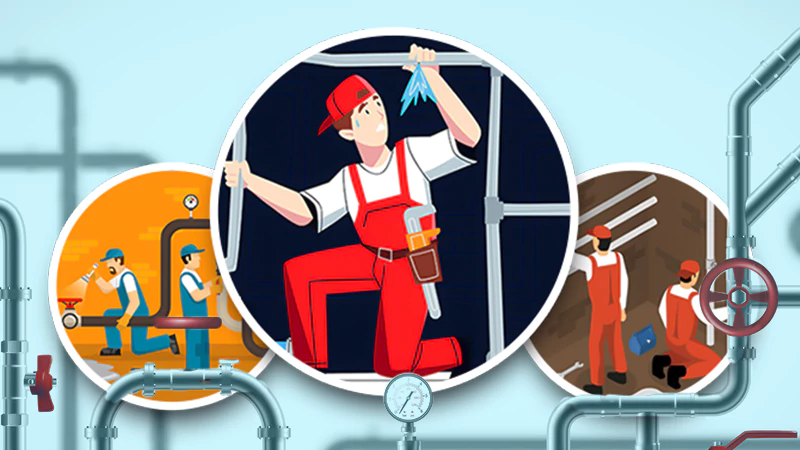Pros and Cons of Buying a Car with a Rebuilt Title
Known also as a salvage title, a rebuilt title is a designation given to a vehicle that has been declared an insurance company’s total loss but has been repaired and is deemed fit for use on the road again. While buying a car with a rebuilt title can be a cost-effective option for those looking for a used vehicle, it is important to understand the pros and cons before making a purchase.
Pros
Less expensive
One of the biggest pros of buying a car with a rebuilt title is the cost savings. These vehicles are typically sold at a significant discount compared to a car with a clean title, making them an attractive option for budget-conscious buyers. Additionally, many vehicles with rebuilt titles have undergone extensive repairs and may be in better condition than a similar vehicle with a clean title.
Buying a car with a rebuilt title can be a way to purchase a luxury or high-performance vehicle that would otherwise be out of reach financially. These types of vehicles can be expensive to purchase new, but they may be more affordable when purchased with a rebuilt title.
Could Get Lucky
It’s possible that you will find a relatively new rebuilt title car that only has minimal or purely superficial damage. Shopping for a rebuilt title vehicle allows you to use such opportunities and buy a car in good condition for a fraction of its original price.
Cons
That being said, there are also several cons to consider when buying a car with a rebuilt title.
Incomplete or insufficient repairs
One of the biggest cons is that these vehicles may have structural or mechanical issues that were not fully repaired. This can lead to problems down the road and could be costly to repair.
Difficulties Getting Insurance
Additionally, rebuilt titles may be difficult to insure, as some insurance companies may be hesitant to cover vehicles with salvage history.
Insurance for cars with a rebuilt title can be an exceptionally challenging task. This is because cars with rebuilt titles have typically been in an accident, flood, or fire and have been repaired and rebuilt. This can make them riskier for insurance companies to insure.
Insuring a rebuilt title car can make it harder for insurance companies to assess the value of the car, as it may have been rebuilt using parts that are not original equipment manufacturer (OEM) parts. This can make it harder for insurance companies to determine the car’s value in the event of a total loss.
Another difficulty is that some insurance companies may be more hesitant to insure a rebuilt title car as they may view it as a higher risk. This can make it more challenging for the owner of a rebuilt title car to find an insurance company willing to insure it.
Additionally, insurance companies may charge higher rates for insuring rebuilt title cars, as they view them as being more likely to be involved in an accident.
Lower Resale Value
Another con of buying a car with a rebuilt title is that the vehicle may have a lower resale value compared to a car with a clean title. This is an important factor to consider if you are planning to resell the vehicle in the future. Additionally, cars with rebuilt titles may not be eligible for certain types of financing, making it more difficult to secure a loan or lease.
When considering buying a car with a rebuilt title, it is important to thoroughly inspect the vehicle before making a purchase. The vehicle should be inspected by a certified mechanic who can check for any structural or mechanical issues that may have been missed during the rebuilding process. Additionally, it is important to check the vehicle’s history report to see if it has been in any accidents or had any other issues in the past.
It is also important to research the laws in your state regarding rebuilt titles, as they can vary significantly from state to state. Some states have strict regulations regarding the repair and inspection of vehicles with rebuilt titles, while others may have less stringent requirements. Understanding the laws in your state can help you make a more informed decision about whether a car with a rebuilt title is the right choice for you.
It’s essential that you familiarize yourself with every single aspect and nuance of buying a rebuilt title car. Ensure that your final decision is grounded on facts and there will be no surprises that you won’t be prepared for in the long run, having purchased a salvage title vehicle.
Rebuilt Title Car Insurance Requirements
The requirements for insuring a car with a rebuilt title can vary depending on the insurance company and the state in which the car is registered. However, there are some general requirements that are commonly used by insurance companies when insuring rebuilt title cars.
Successful Safety Inspection
One requirement is that the car must pass a safety inspection. This inspection will check the car’s mechanical and structural integrity to ensure that it is safe to drive.
Licensing, registration
Another requirement is that the car must be fully licensed and registered. This means that the car must have a valid license plate and registration.
Original Equipment Manufacturer Parts
Some insurance companies may also require that the car has been rebuilt to OEM standards, which means that the parts used in the rebuild must be original equipment manufacturer (OEM) parts. This ensures that the car is rebuilt to the same standards as it was originally manufactured.
Title Documentation by the DMV
Additionally, some insurance companies may require that the car’s rebuilt title is properly documented by the state’s department of motor vehicles and that the car is in compliance with all state and federal laws.
Be prepared to insure your vehicle and get the procedure nailed down. Obtain quotes to get an idea of what you can expect on average and catch good deals.
To Sum It Up
In conclusion, buying a car with a rebuilt title can be a cost-effective option for those looking for a used vehicle. However, before making a purchase, it is critical to weigh the benefits and drawbacks, including the potential for hidden structural or mechanical issues, difficulty in insuring, and lower resale value, as well as understanding the laws in your state. Furthermore, it is important to thoroughly inspect the vehicle and check its history report before making a decision. A car with a rebuilt title can be a good option, but you must be aware of all the possible risks and downsides that come with it.
Exploring Common 2-Story Houses Energy Usage Patterns and…
How Long Does It Take to Obtain An…
The Secrets Behind High-Performance Racing Windows
Co-Parenting Strategies for Divorced or Separated Parents in…
How Auto Lawyers Help Victims of Distracted Driving…
How Can an Attorney Help in a Trucker…
What is the Rule of Thumb for Pipes?
Best DVD Rippers for Windows & Mac: Free…
Reducing the Impact of Unexpected Construction Expenses
8 Ways to Improve Wi-Fi Speed and Stability…
What Information Can Be Gleaned From a Funnel…
Essential Strategies to Make Hotel Management Easier












